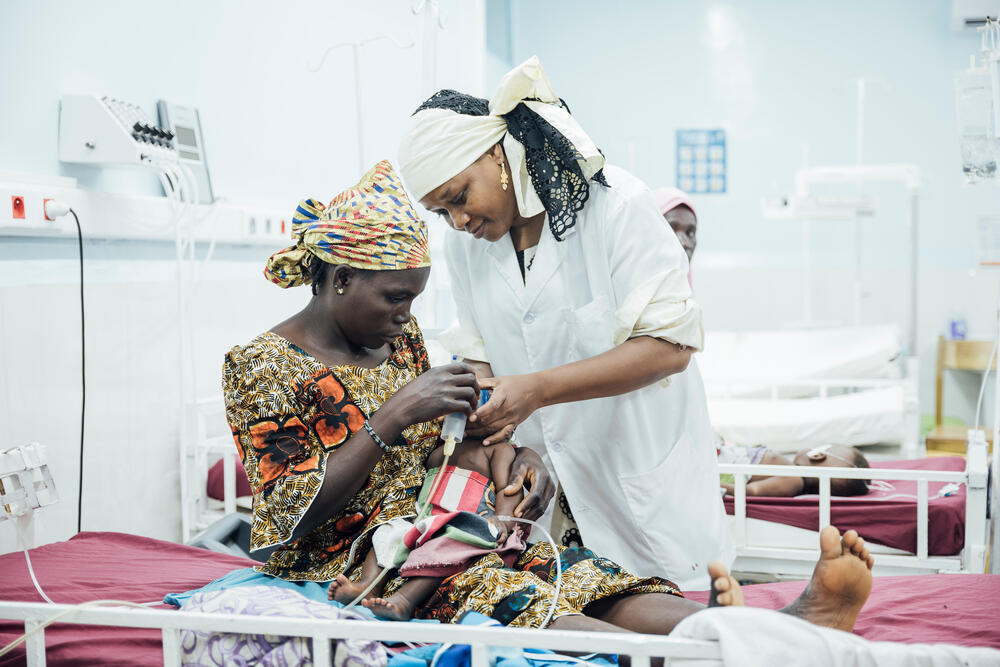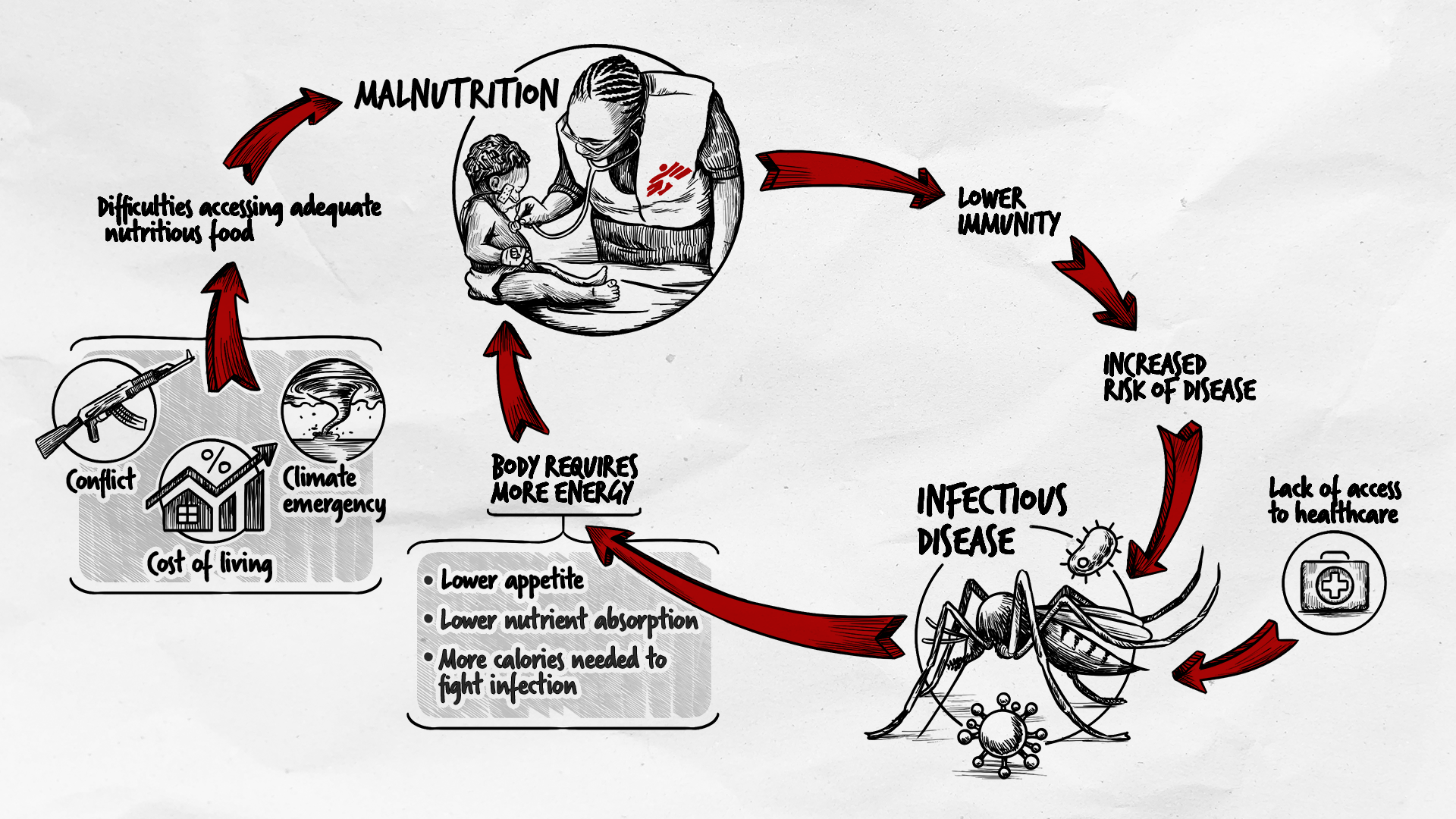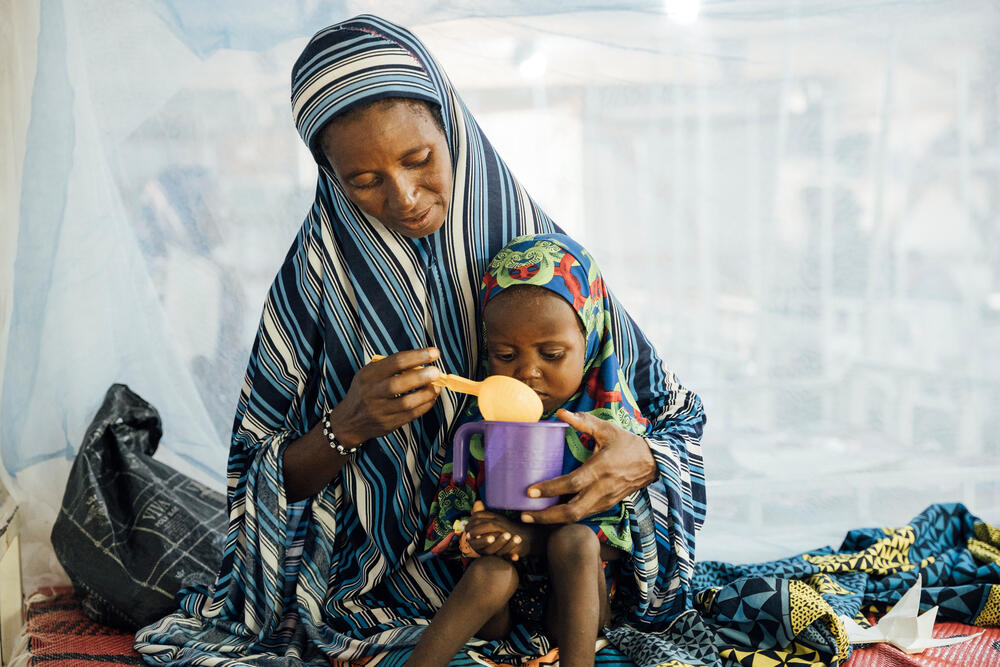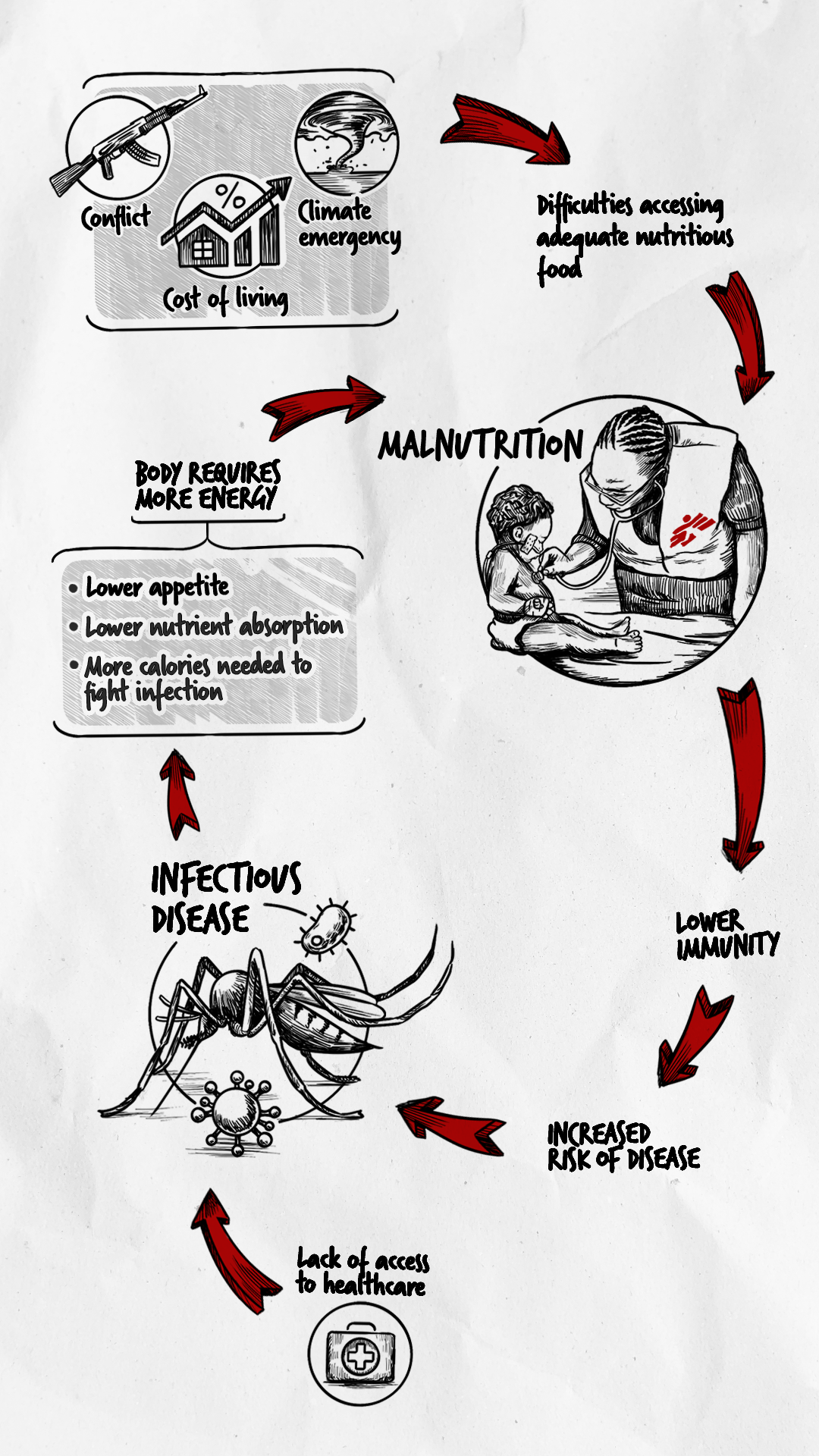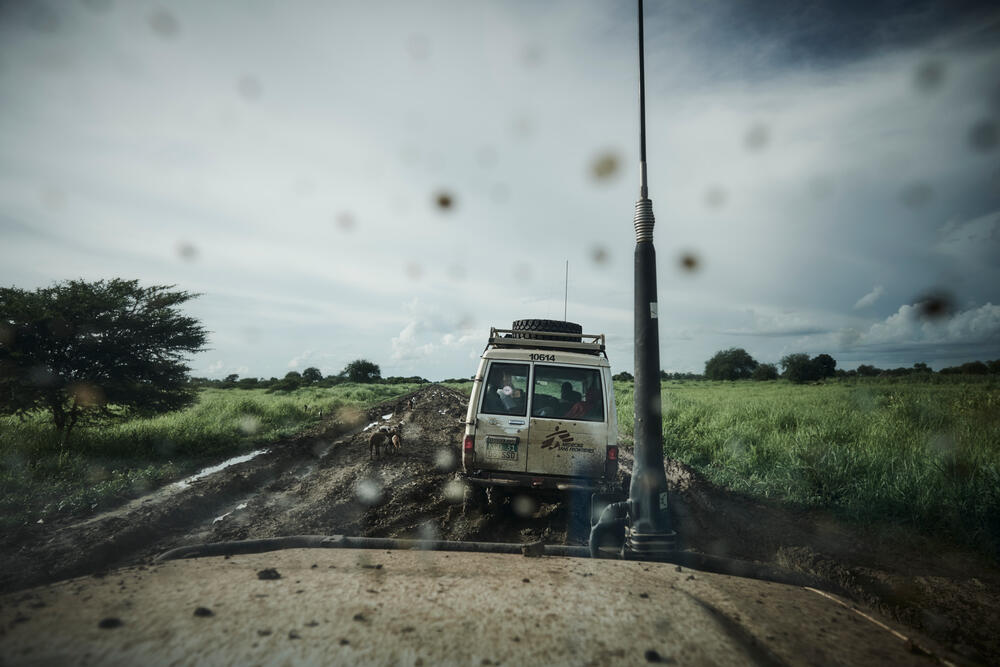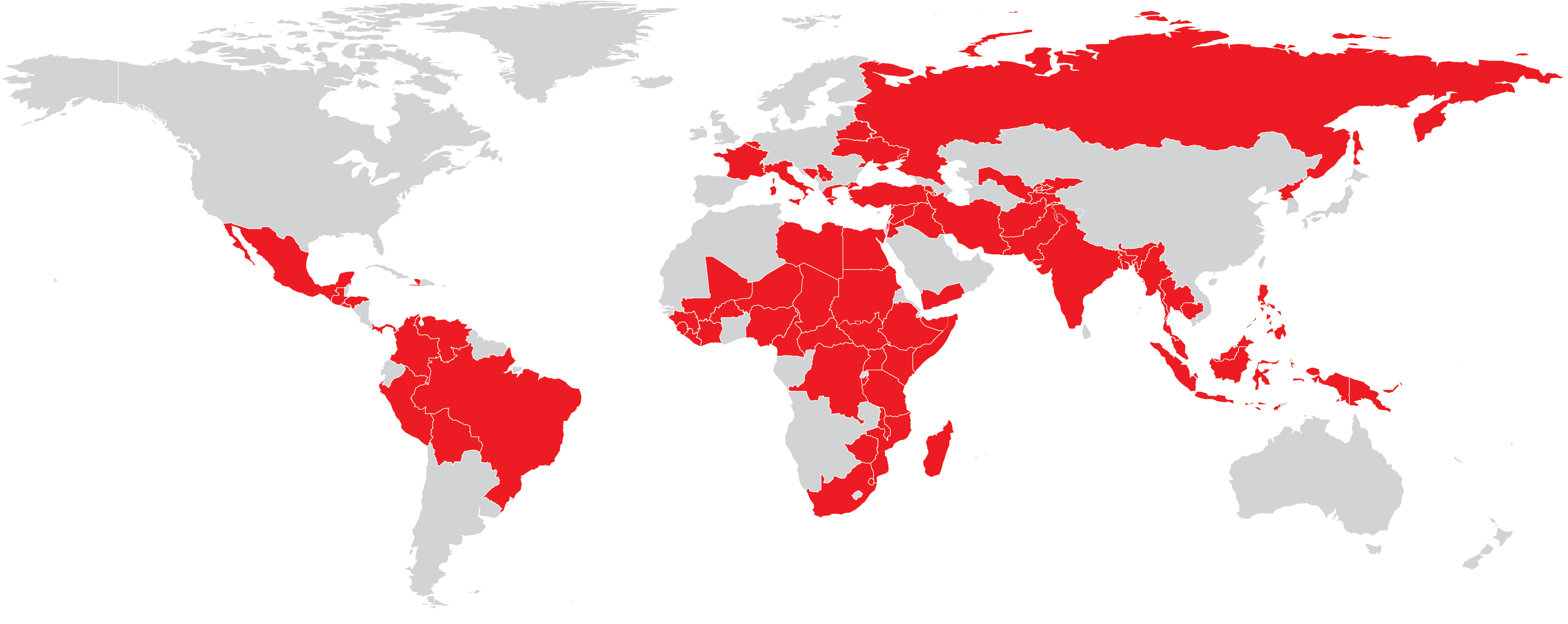Malnutrition is about more than hunger. It’s about healthcare.
Children with severe malnutrition struggle to fight off deadly diseases such as malaria, pneumonia or measles. Even giving food itself can bring on dangerous medical complications. That’s why MSF teams are delivering expert care to save young lives.
Why now?
Climate change, conflict and the cost of living globally are driving a deadly spike in malnutrition. Children under five are the most at risk.
What is MSF doing?
In projects around the world, our experienced teams are running medical feeding centres and providing life-saving intensive care to the sickest young patients.
Why MSF?
We’ve been working in challenging humanitarian crisis zones since 1971. We have the robust supply lines and the expert medical staff to get care to where it’s needed most.
How can my donation help?
Enter an amount to find out
What is MSF doing to save lives?
Treating malnutrition with food is not enough.
In countries such as Ethiopia, Niger, Nigeria, Somalia and South Sudan we are operating specialised inpatient feeding centres to help children back to health in a safe and monitored way.
In our hospitals, we are providing critical care to paediatric patients with severe medical complications.
And, our teams are running vital vaccination campaigns and healthcare education services to help young families protect themselves.
Why is MSF different?
Médecins Sans Frontières / Doctors Without Borders (MSF) UK is proudly independent. We are 100 percent funded by passionate people and organisation, and do not take money from governments.
Instead, we have the freedom to act fast without agenda – providing impartial care to people regardless of ethnicity, religion or politics. From remote regions to fast-moving conflicts, we go wherever the need is greatest.
209,000
SEVERELY MALNOURISHED CHILDREN ADMITTED TO INPATIENT FEEDING PROGRAMMES BY MSF IN 2024
149
MILLION CHILDREN GLOBALLY SUFFER STUNTING DUE TO UNDERNUTRITION
45%
OF CHILD DEATHS GLOBALLY LINKED TO MALNUTRITION
